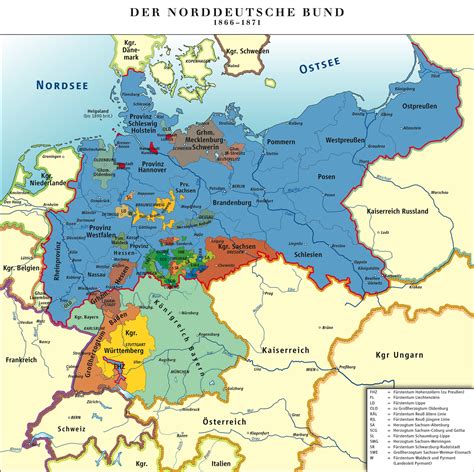Discover the rich history of Canaan, King David’s reign, Babylonian Exile, Roman Occupation, and the founding of modern Israel in this comprehensive blog post.
The Ancient Land of Canaan
Contents
The ancient land of Canaan holds a significant place in the history of Israel. This region, often mentioned in biblical texts, is known for its rich cultural and religious heritage. Canaan was situated in the eastern Mediterranean and was characterized by its diverse topography, including coastal plains, highlands, and the Jordan River valley. The land of Canaan was inhabited by various indigenous tribes, including the Amorites, Hittites, and Jebusites.
The history of Canaan dates back to the Early Bronze Age, with evidence of human settlement found in archaeological sites such as Jericho and Megiddo. The region became a center for trade and commerce, with its strategic location attracting the attention of neighboring empires such as Egypt and Mesopotamia.
The ancient land of Canaan was also significant in the religious beliefs of the Israelites, as it was the promised land that God had led them to according to biblical accounts. The Israelites, under the leadership of Moses and later Joshua, conquered the land and established their presence in Canaan.
The cultural and historical significance of Canaan has made it a subject of fascination for scholars and historians, as well as a source of inspiration for artists and writers throughout the ages. The enduring legacy of Canaan continues to be an integral part of the identity and heritage of the modern state of Israel.
The Reign of King David
King David’s reign is a significant era in the history of Israel. According to biblical accounts, David was the second king of the United Kingdom of Israel, ruling from approximately 1010 to 970 BC. His reign is remembered as a time of military expansion, religious consolidation, and cultural growth for the kingdom. David is often portrayed as a heroic figure, known for his triumph over the Philistine giant Goliath and his establishment of Jerusalem as the capital city.
During David’s rule, the kingdom of Israel experienced a period of unprecedented power and influence. David’s military campaigns resulted in the extension of Israel’s borders, as he successfully conquered and subjugated neighboring territories. In addition to his military victories, David is also revered for his contributions to the religious and cultural identity of Israel. He is credited with centralizing worship in Jerusalem, as well as composing a significant portion of the Book of Psalms, which remains an integral part of Jewish and Christian liturgy.
However, David’s reign was not without controversy and conflict. His affair with Bathsheba and the subsequent murder of her husband, Uriah the Hittite, are among the most well-known episodes of David’s personal life. Additionally, his reign was marked by internal strife and familial discord, as evidenced by the power struggles and betrayals within his own household.
Despite these challenges, the legacy of King David endures as a foundational figure in the history and identity of Israel. His reign is commemorated in religious texts, artistic representations, and national symbols, making him a prominent and enduring figure in Israeli culture and history.
The Babylonian Exile
The Babylonian Exile was a significant period in the history of Israel, marking a time of great upheaval and displacement for the Jewish people. This event took place in the 6th century BCE when the Babylonian Empire, under the rule of King Nebuchadnezzar II, conquered the Kingdom of Judah and destroyed the city of Jerusalem, including the holy temple. The Babylonians exiled a large portion of the Jewish population to Babylon, where they were forced to live as captives in a foreign land, far from their ancestral home.
During the exile, the Jewish people faced immense challenges as they struggled to maintain their religious and cultural identity in the face of Babylonian influence. Despite being physically removed from their homeland, the Jews managed to preserve their sense of community and religious practices, laying the foundation for future religious traditions and texts that would shape the identity of the Jewish people for centuries to come.
For the Jewish people, the Babylonian Exile was a period of introspection and religious transformation. It was during this time that the concept of the synagogue as a place of worship and study emerged, as a way for the exiled Jews to maintain their religious practices and traditions. Additionally, the exile prompted the recording and preservation of the Hebrew scriptures, contributing to the development of the Tanakh, or Hebrew Bible, as a central religious text for the Jewish faith.
The Babylonian Exile ultimately came to an end with the rise of the Persian Empire, which conquered Babylon and allowed the Jewish captives to return to their homeland. This period of return and restoration, known as the Babylonian captivity, marked a new chapter in the history of Israel, as the Jewish people sought to rebuild Jerusalem and revive their religious and cultural practices in their ancestral land.
The Roman Occupation
The Roman Occupation of Israel began in 63 BCE and lasted for nearly seven centuries. It was a period of significant political and cultural change for the region, as the Roman Empire exerted its influence over the land formerly known as Judea. The Roman conquest of Israel led to the destruction of the Second Temple in Jerusalem in 70 CE, a pivotal event in Jewish history that marked the beginning of the Jewish Diaspora.
During the Roman Occupation, the land of Israel was renamed Palestine and became a province of the Roman Empire. The Romans implemented new administrative and legal systems, and the local population faced heavy taxation and oppression. The Jewish population rebelled against Roman rule multiple times, leading to violent conflicts and widespread devastation.
One of the most well-known revolts was the First Jewish–Roman War, which culminated in the Siege of Jerusalem and the destruction of the city in 70 CE. The Jewish population was dispersed and scattered throughout the Roman Empire, contributing to the spread of Jewish communities across the Mediterranean and beyond.
Despite the challenges and hardships faced during the Roman Occupation, the period also saw the development of diverse cultural and religious traditions. The teachings of Jesus of Nazareth and the rise of Christianity had a profound impact on the region, and the city of Jerusalem became a center for early Christian communities.
The Roman Occupation of Israel came to an end with the rise of the Byzantine Empire in the 4th century CE. The lasting legacy of this period continues to shape the history and identity of the land of Israel to this day, as the region has been at the crossroads of various empires and cultures throughout the centuries.
The Founding of Modern Israel
The founding of Modern Israel is a complex and contentious subject that continues to be the source of much debate and conflict in the Middle East. The establishment of the State of Israel in 1948 was the result of decades of Zionist efforts to create a Jewish homeland, as well as the aftermath of World War II and the Holocaust.
Following centuries of displacement and persecution, the Jewish people sought to regain sovereignty and establish a homeland in their ancestral land. The Balfour Declaration of 1917, in which the British government expressed support for the establishment of a Jewish national home in Palestine, marked a significant turning point in the Zionist movement.
After the massive loss of life during World War II and the Holocaust, international sympathy for the Jewish people and support for the establishment of a Jewish state increased. In 1947, the United Nations voted to partition Palestine into separate Jewish and Arab states, leading to the establishment of the State of Israel the following year.
This establishment was met with immediate opposition from Arab nations and led to a series of conflicts and wars in the region. The ongoing Israeli-Palestinian conflict and the Arab-Israeli conflict are a testament to the complexity and depth of the issues surrounding the founding of Modern Israel.
Despite the challenges and controversies, the State of Israel continues to thrive and play a significant role in the Middle East and on the global stage, making the founding of Modern Israel a crucial and enduring chapter in human history.














